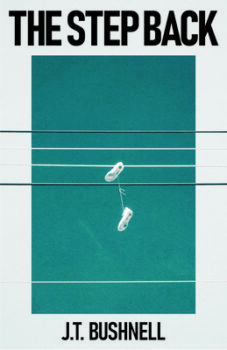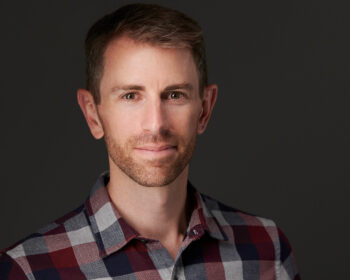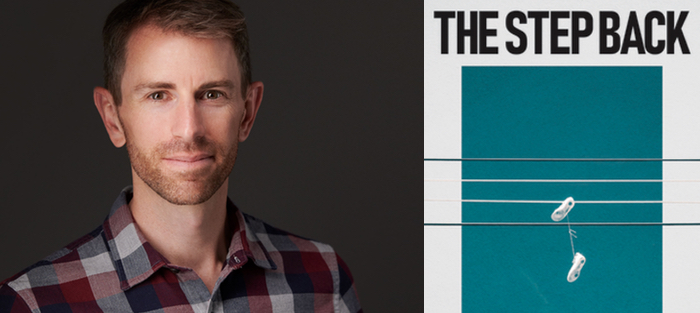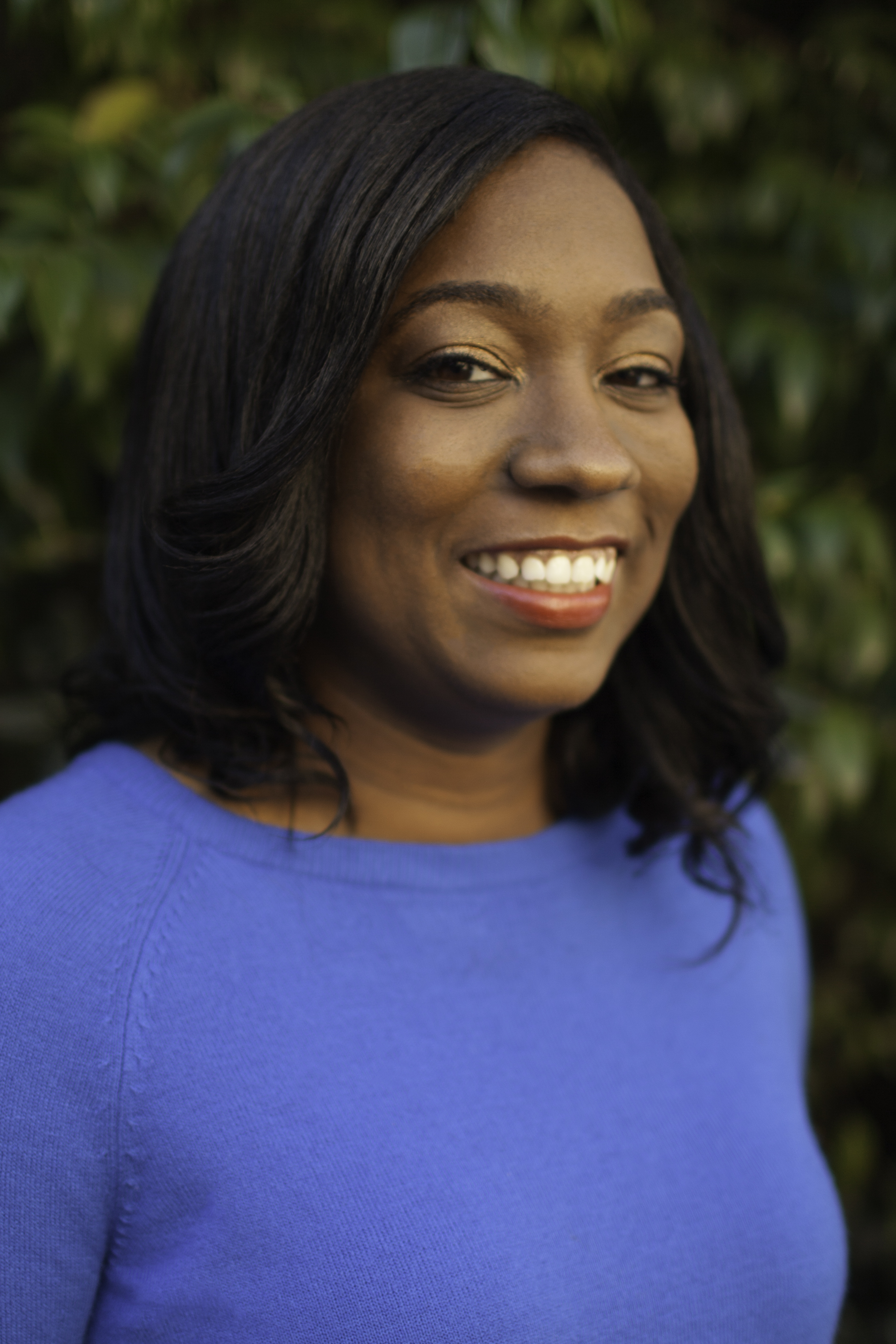J.T. Bushnell’s debut novel, The Step Back (Ooligan Press), is a beautiful, tightly crafted coming-of-age narrative about Ed Garrison’s journey from high school honor student and bench-warming varsity basketball player to wayward undergraduate at Sequoia College, a California liberal arts school with perhaps the worst college basketball team in the country.
Ed leaves a fractured home to attend school. His mother has left the family under shocking circumstances, his father remains in solitude and drunkenness, and younger brother Charlie, though 6’6” and a promising basketball talent, largely left to his own devices, dyes his hair green and gets his nose pierced and abandons high school success for punk rock, cannabis, and criminal activity. Meanwhile, Ed, flailing and reeling in his new environs, moves through a slew of dysfunctional relationships. He gets humiliated on the basketball court and at college parties. He gets rejected and beat up, forlorn and kicked out. There’s Danielle, the pollyannish Humane Society volunteer with the heart of gold; there’s Tanya, the all-but-married woman with a dirty mouth and aggressive libido; there’s Lucienne, the high-society East Coast artist who thinks Ed is beneath her—and there are abandoned dogs, loafing college athletes, convicts, and, of course, a fragmented family trying to mend itself.
Amid the hedonism and self-loathing, ultimately Ed will take a step back to question the meaning of all of it. In a story about two years of a young man’s life, age eighteen to twenty, Ed Garrison moves through the pains of newfound freedom and growing up, only to realize we are only as good as the people we have loved, lost, and loved again.
J.T. Bushnell has published many short stories and articles in places such as Iron Horse Literary Review, Monkeybicycle, and Poets & Writers. He holds a B.A. in Journalism from Linfield College and an M.F.A. in Fiction from the University of Oregon. He teaches in the School of Writing, Literature, and Film at Oregon State University.
In March I spoke with J.T. on the patio of Old Nick’s Pub in Eugene, Oregon. We shared a few pints of local beer after shooting baskets on the courts across the street underneath the highway. Next to young men in bandannas and without shirts, with loud music blaring out of speakers, we were by far the oldest dudes there.
Interview:
Walter Moore: Well done, J.T. I love the basketball, I love the characters, and I love the nuance of many of the scenes here, of a young man finding his way in college. What got you started writing this novel?
J.T. Bushnell: I felt this charge with the memory of playing basketball, so I just started writing about basketball—about the pick-up games I used to play with my friends. And I found some interesting things there related to some of the other issues I was writing about like brotherhood and family, as well as divorce. My mother remarried when I was thirty. The man had a son who was about eighteen. And the son floated this idea to me the first time I met him that my mother had broken up his parents’ marriage, which is preposterous. My mom would not even date recently divorced people let alone married men, and it got me thinking, why would this kid invent something that hurt him? Would it make it easier to understand if it was something simple and tawdry? Did it make him feel pain or anger that he thought he couldn’t feel because everyone’s parents get divorced? And so I really thought about his experience and sympathized with him. So those three elements: the brotherhood, the basketball, and that experience with divorce kind of coalesced.
As you mention, this novel’s original catalyst was basketball, a sport that functions so prominently for Ed and for yourself. What connection do you see between sports and writing?
To me the common thread between writing and sports is that you stop being yourself, even in your mind, and you reach a flow state. All that is left is the work, whether it’s driving to the hoop or the scene rising up before you. This is what I live for in both sports and writing. When it’s not there, life can suck and be more difficult. But you just have to keep doing it again and again until you can plug into that state and kind of vanish.
Within this state, or a result of this state, writing has the possibility of changing who you are and how you see the world. Exploring yourself and exploring others through writing, it really has the power to make you a better person. That’s one of the ultimate pleasures of pursuing writing, in particular.
There’s a moment in the novel wherein Ed’s younger brother Charlie and his roommate Tanya bond over feeling like freaks, a term that gets repeated. And later in the story Ed even admits to feeling like a freak himself. Do you see Ed this way?
 Ed is someone who his whole life has been a little bit sheltered. He had a stable family situation, he had a friend group. He is off to college on his own for the first time, and it is very easy for him to exaggerate and fixate on his shortcomings and regrets. He’s made some pretty bad decisions, and I think it’s jarring for Ed to think of himself as someone who makes bad decisions.
Ed is someone who his whole life has been a little bit sheltered. He had a stable family situation, he had a friend group. He is off to college on his own for the first time, and it is very easy for him to exaggerate and fixate on his shortcomings and regrets. He’s made some pretty bad decisions, and I think it’s jarring for Ed to think of himself as someone who makes bad decisions.
But one of the conflicts driving the novel is the way that these kinds of mistakes are inevitable in the suffering they cause us, but ultimately that’s what defines the human experience—our experience of suffering. I think that people who haven’t suffered much don’t have that capacity for empathy usually. Ed is going from someone who is well-adjusted to someone who has a better understanding of someone else’s experiences. That’s what Ed has to achieve in this novel. He has to achieve being a freak.
The character Tanya has such an amazingly uninhibited way of talking and acting. What was it like writing that character?
Delightful! Tanya is one of those characters for me that the moment she appeared on the page, she just kind of did her own thing. I just kind of listened and transcribed. It felt like she was operating beyond me. I just watched her behave. This comes from a deep understanding of a character. Their actions are arising from your subconscious. She took on a life of her own, so it was always a pleasure to follow her around and watch her poke people and be herself.
There are also scenes with her that shocked me that I cut out of the novel. There were scenes that I couldn’t believe what she was doing as I was writing it. I do think the novel is better without those scenes, but it does speak to the level of autonomy that that character seemed to have for me.
Ed has a series of romantic relationships in college, but Danielle does seem like the one that got away.
Ed does see that the version of himself that he’s lost would have been great with Danielle. But what he fails to see is that the version of himself even now would be great with her. He’s not emotionally capable, and he thinks he’s arrived at a truth that makes him wise and above people who see hope in the world, who want things like happiness and love. He’s seen through all of that. I think a lot of teenagers go through that, a lot of college students, a lot of people that age. So what I was always trying to do was let him reach a new layer of truth but then somehow reveal that truth to also be inadequate, so I think that’s what Danielle does, and I hope the reader senses that, yeah, she’s the one who got away, she would be perfect, but Ed’s hang-ups keep him from recognizing it.
In this novel the character of the mother comes out to the family as gay. I like how you realistically treat a teenager’s reactions to this revelation. Was this a difficult balance to achieve?
Part of the reason I was attracted to this situation was because it’s really hard to resolve. I think the issue for the mother is clear: she’s gay, times are changing, she’s found someone she loves, and I think it’s easy to see where she’s coming from. But I think Ed’s perspective on it is equally valid. He’s not angry at her for being gay, he’s angry at her for leaving their family. Which I think is a valid reason to be hurt. For whatever reason, you want people you rely on most to be there for you. He feels abandoned, and even though she has abandoned the family for legitimate reasons, he has a right to feel abandoned. So feeling the legitimacy of Ed’s pain and feeling the legitimacy of the mother’s choice to me was really a ripe situation for building a narrative for a novel. If there’s an easy answer, then the story is over in fifteen pages.
Why did you set the story in California instead of Oregon?
 Thank you for asking. I’m a longtime Oregonian. I’ve lived in Oregon for thirty years. My family moved me here when I was ten, and that’s not something I admit easily. And one of the things I had discovered writing this novel is the degree to which I had alienated myself from my roots in California, because I learned quickly that people in Oregon do not like hearing you’re from California. They feel invaded. And I feel that way sometimes myself now, when I hear about my students coming from California and they say “I really like it here.” And I want to say I learned very early on that I should hide that I was from California or apologize for it, and I think it convinced me that that phase of my life, the first ten years, didn’t have much to do with me, and I set this story there in a landscape similar to the one I left behind and haven’t been back to in a long time. And I felt emotion. And when I’m writing, I’ve learned to recognize those moments when I feel an emotion and pursue them. So there’s no good logical reason to have the novel set in California except that landscape meant something to me that I wasn’t sure about anymore, and it held emotional resonance that I didn’t understand, so I wanted to pursue it. A lot of the stuff that happens later in the novel in northern California is largely Oregon transplanted into a more reasonable proximity.
Thank you for asking. I’m a longtime Oregonian. I’ve lived in Oregon for thirty years. My family moved me here when I was ten, and that’s not something I admit easily. And one of the things I had discovered writing this novel is the degree to which I had alienated myself from my roots in California, because I learned quickly that people in Oregon do not like hearing you’re from California. They feel invaded. And I feel that way sometimes myself now, when I hear about my students coming from California and they say “I really like it here.” And I want to say I learned very early on that I should hide that I was from California or apologize for it, and I think it convinced me that that phase of my life, the first ten years, didn’t have much to do with me, and I set this story there in a landscape similar to the one I left behind and haven’t been back to in a long time. And I felt emotion. And when I’m writing, I’ve learned to recognize those moments when I feel an emotion and pursue them. So there’s no good logical reason to have the novel set in California except that landscape meant something to me that I wasn’t sure about anymore, and it held emotional resonance that I didn’t understand, so I wanted to pursue it. A lot of the stuff that happens later in the novel in northern California is largely Oregon transplanted into a more reasonable proximity.
The ending of the book occurs on such hopeful terms on the beach with the sun “shining brightly…” I know some writers write towards an ending. Did you always have this sort of positive ending in mind?
This was a project that I never knew what was going to happen ten pages ahead. I wrote 1,200 to 1,500 pages that never made it into the novel. I wrote 250 pages where I took a wrong turn, so I had to back up and find a new route. I wrote other endings and had to back up and write another ending. The whole approach to this novel was understanding these characters, understanding their issues, and listening to the action of the story as carefully as I could. Sometimes I got it wrong and had to back up and do it again. But I didn’t know this would be the ending of the story until several drafts in.
For me the writing process consists of finding an emotion and pursuing that emotion. With the ending to this novel, I had finally arrived at an emotion worth pursuing. And this involves the emotion of an older brother who thinks he is saving his younger brother finally having the realization or feeling that the younger brother is actually saving him.
What was it like to sit with this story for so many years?
Like I said, I worked on this for two years before I even caught the thread to turn into this novel. The feeling that I had most of all was relief. Because I know a lot of writers do not enjoy the act of composition. In fact, when I was a newspaper reporter in Medford, Oregon, there was a colleague who had a slip of paper pinned above her desk that said, “I love writing” and “writing” was crossed out and it said, “having written.” And I know a lot of people feel that way, I feel that way sometimes too, I totally get it, but for me sitting down to write is just like breathing air. It feels so necessary. Especially before I had a family, before I was married and had kids. That’s filled me up in a lot of ways that writing used to fill me up. But the most difficult time for me as a writer was finishing a project and having to figure out a new project to start. Having to figure out a new story, how to develop it. So really what I loved about writing a novel was having the same project to come back to every day. I loved always having something to return to and a place to jump off from.
Are you currently thinking about subsequent projects?
I have a lot of things I’m thinking about, but until I can actually pursue them the thoughts seem pretty worthless. For me it’s about finding it. I always start with a lot of crap, but I just have to write. I just have to shovel the shit until I find something. And when I find it, I can just feel this difference, and it feels real and true. It’s not just a slog. It’s fun and easy. The reason I come back to writing is to find that feeling and pursue it. I don’t know what my next project is, but probably whatever I start with is just going to be shoveling shit for a while until I find the real thing. I will get back there once daycare is a thing again. Once I have not just the time but the mental space to daydream.
But one thing I learned about this project is that I want to write about things that are enjoyable or fun. I had been taught by a professor in graduate school to always write toward the pain. That’s valid, but what I found writing this novel is that if you write towards the joy, it exposes the other stuff too. I started this novel because I wanted to write about pick-up basketball, because I loved it, and I didn’t understand why it felt almost holy in my memories, me playing basketball with my old friends. I just wrote about the love and the fulfillment of that experience, and it exposed other things—darker things, more painful things. Sometimes if you pursue the pain it gets overwrought and depressing, so I think the next time around I’ll be more intentional about pursuing things that give me joy, and let it open up its pits where it wants to.
So what has writing Ed’s story taught you about yourself?
Oh, man, I think I’m going to have to go home and think about that one on the page. I don’t think I’m constitutionally equipped to confront it.
Fair enough. Want another beer?






